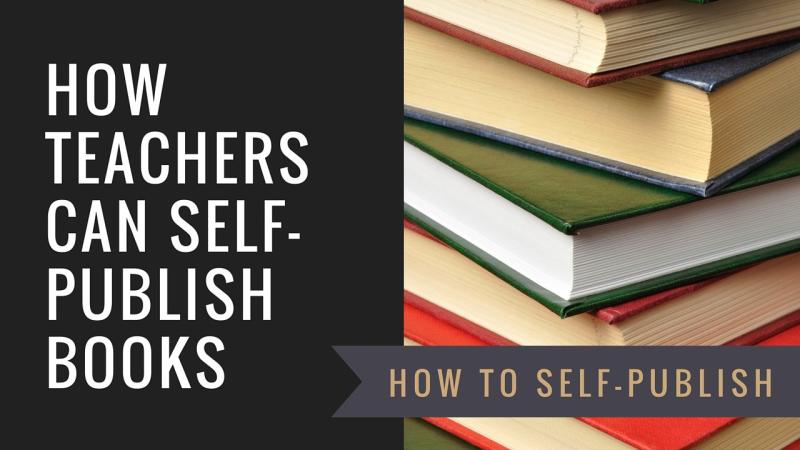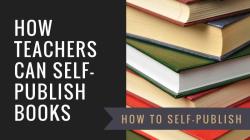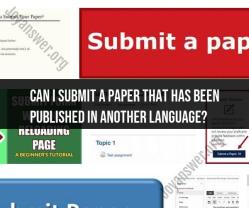How to get a book published with a publisher?
Getting a book published with a traditional publisher involves several steps. Here is a step-by-step process to guide you through the traditional publishing journey:
Write a Strong Manuscript:
- Start by writing a well-polished and compelling manuscript. Ensure that your work is thoroughly edited, free of grammatical errors, and adheres to the conventions of your genre.
Research Literary Agents (Optional):
- While it's possible to submit directly to publishers, many authors choose to seek representation from literary agents. Research and query agents who specialize in your genre. A literary agent can help you navigate the publishing industry, negotiate contracts, and connect you with the right publishers.
Prepare a Query Letter:
- Whether you're submitting directly to publishers or through a literary agent, you'll need a query letter. This letter introduces you and your book, providing a brief summary and highlighting key aspects that make your work unique. Be concise and engaging.
Prepare Submission Materials:
- Publishers typically have submission guidelines on their websites. Prepare a submission package that may include a query letter, a synopsis, and sample chapters. Follow each publisher's specific requirements.
Submit to Publishers or Agents:
- Send your query letters and submission packages to publishers or agents. Make sure to follow their submission guidelines precisely. Be patient during this stage, as response times can vary.
Build an Author Platform:
- Publishers often look for authors with a strong online presence and a built-in audience. Establish and maintain an author platform through social media, blogging, or other means to demonstrate your ability to market your book.
Negotiate and Sign a Contract:
- If a publisher or agent expresses interest, they may request additional materials or arrange a meeting. If there is mutual interest, negotiations will begin. Carefully review any contract offered and, if you have an agent, work together to negotiate terms.
Edit and Revise:
- Once a contract is signed, the editing process begins. Work closely with your editor to revise and refine your manuscript. This may involve multiple rounds of edits.
Design and Production:
- The publisher takes care of designing the book cover, formatting the interior, and preparing the book for publication. Be involved in decisions related to cover design and any other visual elements.
Marketing and Promotion:
- Participate in the marketing and promotion of your book. Traditional publishers have marketing teams, but your active involvement can contribute to the book's success. This may involve book tours, social media campaigns, and other promotional activities.
Book Launch:
- Celebrate the launch of your book! Engage with your audience through book signings, interviews, and other promotional events. Leverage your author platform to generate interest.
Stay Engaged:
- Continue engaging with your readership and promoting your book even after the initial launch. Positive reviews, word of mouth, and ongoing marketing efforts can contribute to the long-term success of your book.
Remember that the process can vary, and success in traditional publishing often requires persistence, professionalism, and a strong, marketable manuscript. If you choose to work with a literary agent, their guidance can be invaluable in navigating the complexities of the publishing industry.
Traditional publishing journey: How to get a book published with a publisher?
The traditional publishing journey to getting a book published with a publisher can be a long and challenging one, but it can also be rewarding. Here is a general overview of the process:
- Write and finish your book. This is the most important step, of course! Make sure your book is well-written, polished, and ready to be submitted to publishers.
- Research literary agents. Literary agents are intermediaries who represent authors and negotiate deals with publishers. They can be a valuable asset in the publishing process, but they are not required.
- Query agents and publishers. If you are represented by an agent, they will handle this for you. If you are not represented by an agent, you will need to query agents and publishers directly. This involves sending a brief query letter that introduces your book, your writing experience, and why you think your book would be a good fit for the agent or publisher.
- Receive a request for a full manuscript. If an agent or publisher is interested in your book, they will request a full manuscript. This is your chance to really show them what you've got! Make sure your manuscript is in the correct format and double-checked for any errors.
- Receive an offer. If an agent or publisher is interested in your book, they will offer you a contract. This contract will outline the terms of the deal, such as the advance, royalties, and marketing budget.
- Negotiate the contract. Once you have received an offer, you will have the opportunity to negotiate the terms of the contract. This is where a literary agent can be very helpful.
- Sign the contract. Once you are happy with the terms of the contract, you will sign it and the publishing process will begin!
Understanding the traditional publishing process and securing a publishing deal
The traditional publishing process can vary depending on the publisher, but here is a general overview:
- Acquisitions: The acquisitions department at a publishing house is responsible for finding and acquiring new books. They review queries and manuscripts from agents and authors, and they decide which books to publish.
- Development: Once a book has been acquired, the development department works with the author to polish the manuscript and prepare it for publication. This may involve editing, rewriting, and fact-checking.
- Design and production: The design and production department is responsible for designing the book's cover and interior layout, and for printing and binding the book.
- Marketing and sales: The marketing and sales department is responsible for promoting and selling the book. They may develop marketing campaigns, contact booksellers, and arrange author events.
Securing a publishing deal is competitive, but it is possible with hard work and perseverance. Here are some tips for authors seeking to collaborate with established publishers for book publication:
- Write a great book. This may seem obvious, but it is essential to write a book that is well-written, engaging, and marketable.
- Research publishers and agents. Find publishers and agents who are interested in the type of book you have written. You can do this by visiting their websites and reading their submission guidelines.
- Write a strong query letter. Your query letter is your first chance to make a good impression on an agent or publisher. Make sure it is clear, concise, and well-written.
- Be patient and persistent. It may take time to find an agent or publisher who is interested in your book. Don't give up!
Tips for authors seeking to collaborate with established publishers for book publication
Here are some additional tips for authors seeking to collaborate with established publishers for book publication:
- Network with other authors and publishers. Attend industry events and connect with other authors and publishers on social media. This is a great way to learn about the publishing industry and to make connections.
- Get feedback on your work. Ask friends, family, and beta readers to read your work and give you feedback. This will help you to identify any areas that need improvement.
- Be professional. When communicating with agents and publishers, be professional and polite. This means proofreading your emails and queries carefully, and meeting deadlines.
Following these tips can increase your chances of securing a publishing deal with an established publisher.






